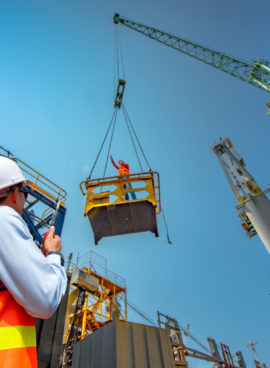When the Surety Comes to Town: A Surety Bond Primer
Few parties are happy when the surety rolls into town as it typically means the construction project has gone awry. The owner faces a project that may not be complete within the contract time or price. The general contractor may face bet-the-company liability and the underlying owners of the contractor certainly face personal liability to the surety for amounts expended. The subcontractors face potential payment delays and financial hardship. And, of course, the surety faces potentially significant financial responsibility to pay claims or complete the project or both.
Even during norm
No Damages for Delay?
Delay damages are the guests who show up uninvited for Thanksgiving dinner, tolerated, but not wanted. No matter how high you set the temperature of the thermostat to make the guests uncomfortable and make them want to leave, they stay. And stay. And stay some more.
Over the past several years, severe labor shortages in subcontracted trades have forced delays in critical paths of many projects. The novel coronavirus and COVID-19 pandemic have made matters more acute. Some projects have been shut down altogether, potentially giving rise to arguments that performance is impossible, imp
Getting The Goods: Excusing Performance For The Supply Of Construction Materials
You negotiated and signed the terms for purchasing construction materials for the project. The project begins, but the materials arrive late or, worse yet, not at all. What can you do to avoid or mitigate liability for a breach of contract claim?
Our COVID-19 page has covered many related topics, including the applicability of a force majeure clause. But what if your contract doesn’t include such a clause or some other alternative? Many times, material is supplied under an invoice or purchase order, with no written purchase agreement or terms and conditions.
If the materials qualify
The Golden Rule? Termination Or Suspension Of Contracts
One version of the Golden Rule—he/she who holds the gold makes the rules—is particularly true when it comes to suspension or termination clauses in design and construction contracts. In one of the tell-tale clues of who prepared the contract, termination clauses and suspension clauses (to a lesser extent) typically give all the power to the person who prepared the contract. For example, if an owner prepared the prime contract, the owner typically has all the rights to terminate the contract; the general contractor usually has none.
Aside from making an interesting anecdotal study
Say It Ain’t So: Pay-If-Paid And COVID-19
Although the economic effects of COVID-19 may be felt for many years to come, its effect on payment for ongoing construction may be more immediate. What is the general contractor’s obligation to pay subcontractors when the project owner’s funds run out? Bluntly, it depends. One important consideration is whether the subcontract agreement contains a pay-if-paid clause.
1. What is Pay-If-Paid?
A pay-if-paid clause, more eloquently called a contingent payment clause, requires the owner to pay the general contractor before the general contractor has to pay its subcontractor.







